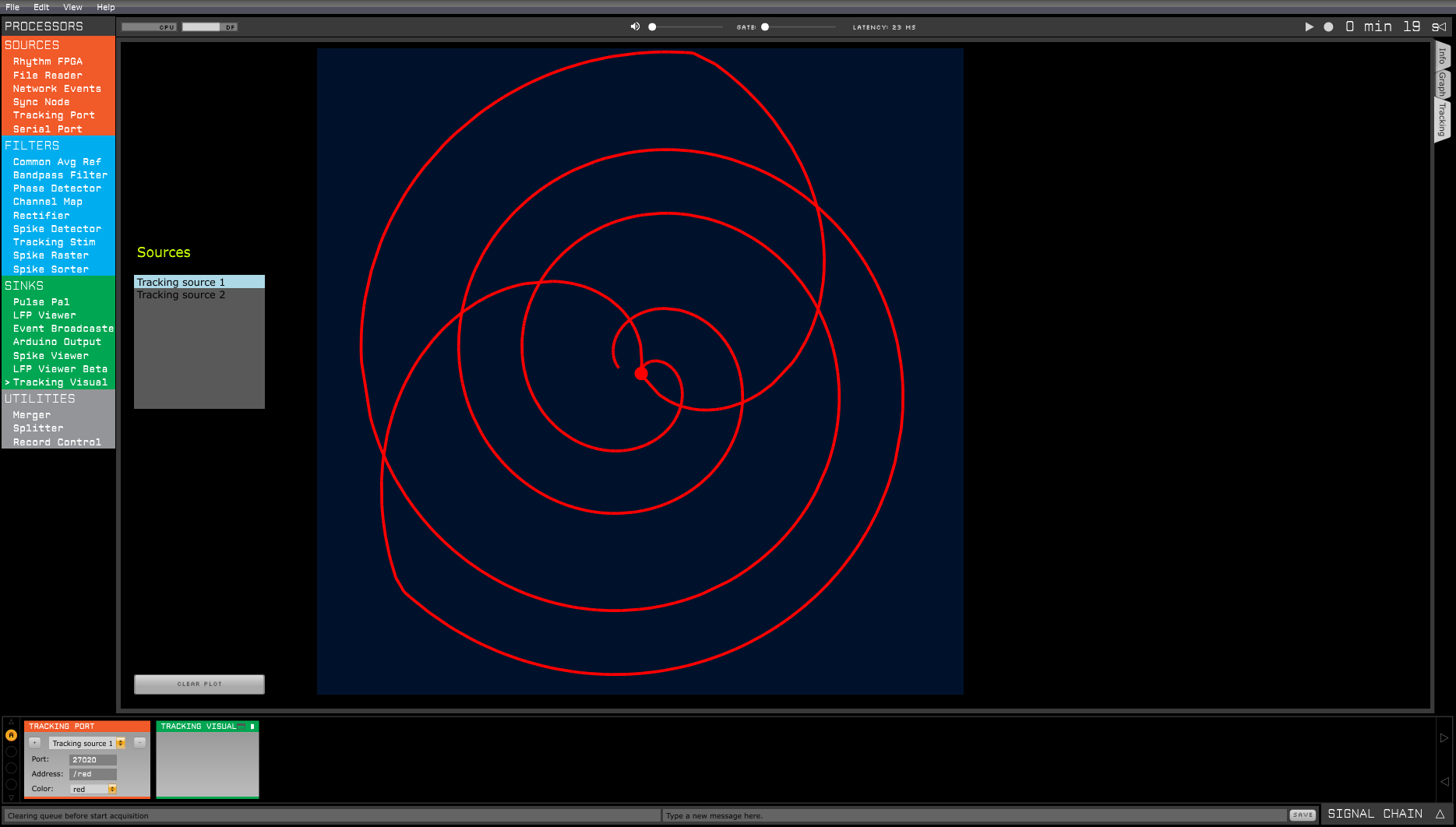
 Buccino, Lepperød, Dragly et al (Journal of Neural Engineering, 2018)
Buccino, Lepperød, Dragly et al (Journal of Neural Engineering, 2018)
Methods that combine monitoring neural activity, behavioral tracking, and targeted manipulation of neurons in closed-loop are powerful tools. However, commercial systems that allow these types of experiments are usually expensive and rely on non-standardized data formats and proprietary software which may hinder user-modifications for specific needs. In order to promote reproducibility and data-sharing in science, transparent software and standardized data formats are an advantage.Based on the Open Ephys system (www.open-ephys.org) we developed multiple modules to include real-time tracking and behavior-based closed-loop stimulation. Combining the open source software Bonsai (bonsai-rx.org) for analyzing camera images in real time with the newly developed modules in Open Ephys, we acquire position information, visualize tracking, and perform tracking-based closed-loop stimulation experiments. To analyze the acquired data we provide an open source file reading package in Python. The system robustly visualizes real-time tracking and reliably recovers tracking information recorded from a range of sampling frequencies (30–1000 Hz). We recorded place cell and grid cell activity in the hippocampus and in the medial entorhinal cortex and used the system for closed-loop optogenetic stimulation of entorhinal grid cells.
Wiki page on github containing a detailed guide on how to set up the system:
Open source modules for tracking animal behavior and closed-loop stimulation based on Open Ephys and Bonsai
Alessio Paolo Buccino1,5, Mikkel Elle Lepperød1,2,4, Svenn-Arne Dragly1,3, Philipp Häfliger1,5, Marianne Fyhn1,2 and Torkel Hafting1,2,4
Journal of Neural Engineering, Volume 15, Number 5
Special Issue on Open Source Tools in Systems Neuroscience
